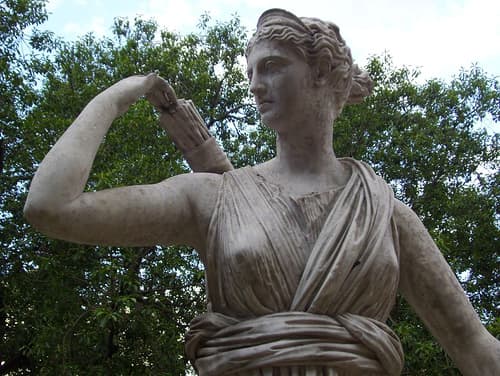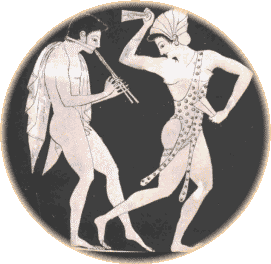300 (2006) - IMDb
Mar 09, 2007 · 300: Directed by Zack Snyder. With Gerard Butler, Lena Headey, Dominic West, David Wenham. King Leonidas of Sparta and a force of 300 men fight the Persians at Thermopylae in 480 B.C.
Her father, Cleomenes, was the eldest-born son of the previous Agiad king, Anaxandridas II. He succeeded his father at his death; however, he had three paternal half-brothers, of whom the eldest, Dorieus, would eventually cause him trouble; challenging the decision of Cleomenes being successor, which was later over-ruled. The other two half-brothers were Leonidas I and Cleombrotus. All four were sons of …
Wikipedia · Text under CC-BY-SA license
Women of History: Gorgo, Queen of Sparta
Daughter of a king, wife of a king, mother of a king: Queen Gorgo of Sparta was a singular personality in the history of ancient Greece. Her wisdom and political acumen made her a highly respected queen and the subject of numerous anecdotes in Herodotus’ Histories.
Gorgo was born between 518 and 508 BC, and was the only child of King Cleomenes. Her name is a derivation of "Gorgos," meaning "terrifying," after which were named the mythical Gorgons, three sisters whose ugliness was so spectacular that any who looked upon them would be turned to stone. The implication, of course, is that Gorgo was not a particularly pretty woman, but Herodotus does not remark upon her appearance one way or another.

Artemis, goddess of the hunt, was widely worshiped in Sparta and exemplified many of the desirable traits of its women.
Daughter of a King
Sparta was ruled by two kings, descendants from the Agiad and Eurypontid noble families. Cleomenes was of the Agiad line, the eldest son of Anaxandrides II by his second wife, and had three half-brothers. One of these was Leonidas, who would become the husband of Gorgo and the hero of Thermopylae.
Cleomenes was an accomplished military leader and was unusually involved in political developments outside of Sparta, whose rulers and citizens were generally not interested in life outside the Peloponnesus. In 499, a man named Aristagoras, ruler of the Greek Ionian city of Miletus, came to Sparta to invite Cleomenes to take part in a planned Greek revolt against Persia. Cleomenes was skeptical of taking part in such a distant campaign, however, and when Aristagoras confessed that it would be a three-month march from the Ionian coast - not to mention the time it would take to sail across the Aegean Sea - Cleomenes curtly ordered the Milesian to leave Sparta by nightfall.
Aristagoras persisted, however, and followed Cleomenes to his home. It is here that Gorgo enters the historical record. Herodotus relates that Gorgo, a child of eight or nine, was by her father's side when Aristagoras offered the king money - ten talents - to join in the revolt. Cleomenes again refused, but as Aristagoras increased the offer, the king's resolve began to waver. When Aristagoras reached an offer of fifty talents, Gorgo stepped forward and said to Cleomenes, "Father, you had better go away, or this stranger will corrupt you." Cleomenes accepted the rebuke of his daughter, and Sparta did not enter into the Ionian Revolt.
Wife of a King
Cleomenes’ reign was marked by a number of controversies: military meddling in the government of Athens; a war against Argos in which he burned a sacred grove and slaughtered Argives who had surrendered to him; and bribing of the Delphic oracle in order to banish his co-monarch, Demaratus. In his later years he seems to have gone mad; Herodotus states that he attacked citizens in the streets, and was eventually confined to the stocks. There he committed suicide in grisly fashion: convincing a slave to give him a knife, he then stripped skin from his shins, thighs, hips and sides, until he reached his belly and finally died.
It is believed that by the time of Cleomenes’ death around 490 BC, Gorgo was already married to Leonidas, her half-uncle. As a Spartan girl, she would have been trained in physical education, singing, dancing, and poetry, in a less brutal but similar program that the Spartan boys received. Spartan women enjoyed an unusual status in the Greek world. Greek women were confined to their homes, seldom received any formal education, and had few rights. A Spartan woman, by contrast, was able to move about her country freely, to own and inherit property, and to initiate divorce. While they did not have a voting voice, they were highly respected by their men, and Gorgo was known to give advice to the Spartan council on at least one occasion.
The Ionian Revolt begun by Aristagoras had failed, and the Persian king Darius was determined to seek revenge against the upstart Greeks. The exiled Spartan king Demaratus, who had sought refuge at the Persian court, learned of Darius’ plans and conspired to send a warning to Sparta. Correspondence at the time was written upon wax tablets. To evade spying Persian eyes, Demaratus carved his warning message directly into the wood, then covered it over with wax. Upon receiving this apparently blank message, the Spartan council was flummoxed. It was Gorgo who deduced what Demartus had done and told them to scrape off the wax, revealing the message beneath.
Leonidas devoted much of his reign to forging and strengthening alliances between the Greek cities in anticipation of this invasion. That he visited Athens and took Gorgo with him is evident in other anecdotes related by Herodotus. In her most famous remark, she is asked by a “woman from Attica” why only Spartan women, of all the women in the world, are able to rule men. Gorgo replied that “Only Spartan women give birth to real men.”
When Leonidas and his 300 struck out for Thermopylae, both he and Gorgo knew he would not return. Gorgo asked her husband what she should do. He told her simply to “Marry a good man and have many children.”
Sold out
When Duke and Charlie do not return from a scouting assignment, Chris sends Cooper who has a pretty good idea what lays ahead. The Chinese widow of an Irish Ship Captain wants Coop to carry on her husband's empire.
Carol Lawrence (I) |
Singer-actress Carol Lawrence earned widespread stardom quite early in her singing career with the immortal role of Maria in the Broadway musical "West Side Story." However, that success would not parlay into film stardom for Carol as established star Natalie Wood, in spite of the fact that she would need to be vocally dubbed by Marni Nixon, had ... See full bio » Born:in Melrose Park, Illinois, USA |
Recent Earthquakes:Seacliff, California, United States
Seacliff has had: (M1.5 or greater)
- 1 earthquake in the past 24 hours
- 8 earthquakes in the past 7 days
- 48 earthquakes in the past 30 days
- 602 earthquakes in the past 365 days
- 1 earthquake in the past 24 hours
- 8 earthquakes in the past 7 days
- 48 earthquakes in the past 30 days
- 602 earthquakes in the past 365 days
- 1 earthquake in the past 24 hours
- 8 earthquakes in the past 7 days
- 48 earthquakes in the past 30 days
- 602 earthquakes in the past 365 days












































































































































































































































































































































No comments:
Post a Comment
Note: Only a member of this blog may post a comment.